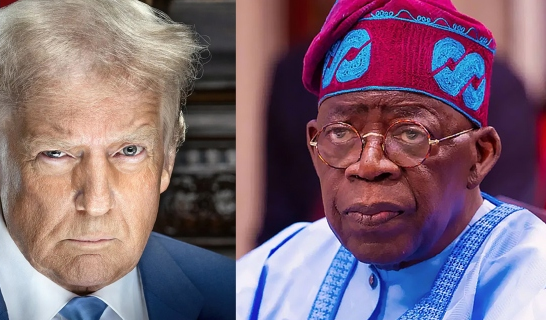Nigeria exported crude oil worth $1.34 billion to the United States between January and May 2025, maintaining its position as America’s largest African oil supplier. However, this dominance masks a broader decline in total trade volume between both countries, underscoring Nigeria’s waning competitiveness in the evolving U.S.–Africa trade landscape.
According to recent data from the U.S. Census Bureau and the Bureau of Economic Analysis, the U.S. imported 17.39 million barrels of Nigerian crude during the five-month period, down from 20.4 million barrels worth $1.52 billion during the same period in 2024. This represents a 12.7% decline in volume and an 11.8% drop in value, reflecting changing market dynamics and a potential reorientation in U.S. oil sourcing.
Despite the decrease, Nigerian crude continued to dominate U.S. imports from Africa, accounting for more than 62% of the continent’s total oil shipments to the United States. Nigeria’s exports far exceeded those of other African suppliers including Libya, Angola, and Ghana, whose combined shipments were valued at just $811 million.
In May 2025 alone, Nigeria shipped 4.2 million barrels of crude to the U.S. valued at $311 million, down from $368 million in April. Crude oil remained the backbone of Nigeria’s exports to America, as it has historically been, even amid shifting trade rules and global energy trends.
Trade Surplus Reversal
While crude exports held steady, Nigeria’s overall export performance to the U.S. has weakened significantly under a new U.S. protectionist trade regime led by President Donald Trump. A sweeping executive order signed in April introduced a 10% tariff on most imports into the U.S., with Nigeria singled out for a higher 14% tariff due to its past trade surpluses.
Crude oil, classified as an energy good, was exempted from the new tariffs. However, the protectionist measures have severely impacted Nigeria’s non-oil exports, including agricultural goods, textiles, and other manufactured items.
As a result, total U.S. imports from Nigeria dropped to $2.12 billion in the first five months of 2025. This is a nearly 20% fall from the $2.65 billion recorded during the same period in 2024. In contrast, American exports to Nigeria rose by 17.8% to $2.42 billion, up from $2.05 billion in the prior year.
This divergence led to a full reversal in the trade balance between both countries. In early 2024, Nigeria held a trade surplus of $596 million over the U.S.; by May 2025, the U.S. had flipped the narrative, recording a surplus of $295 million.
Sectoral Breakdown and Economic Implications
The surge in U.S. exports to Nigeria was led primarily by the automobile sector. Between January and May 2025, Nigeria imported $426 million worth of U.S. vehicles and parts, including $312 million in passenger cars, $29 million in trucks and buses, and $86 million in spare parts.
This sectoral shift points to sustained demand for consumer goods in Nigeria, despite broader economic headwinds and currency depreciation. However, it also explains the imbalance in trade sophistication, with Nigeria primarily exporting raw materials and importing higher-value finished goods.
From an economic standpoint, the decline in Nigeria’s non-oil exports underlines its continued overreliance on crude as a revenue source. It also highlights vulnerabilities to external policy shocks, such as tariffs, which disproportionately affect countries with narrow export profiles.
Furthermore, Nigeria’s diminishing share of U.S.–Africa trade is concerning. The country accounted for just 10.8% of U.S. imports from Africa and 14.8% of exports to the continent during the review period, both marginal declines from 2024. In contrast, Egypt has emerged as America’s top African export destination, with U.S. goods shipments rising from $1.95 billion in early 2024 to $3.43 billion in the same period of 2025, a staggering 76% increase.
South Africa continues to dominate as America’s leading African supplier, with U.S. imports reaching $8.67 billion, over four times Nigeria’s total.
Outlook
Nigeria’s total trade volume with the United States now stands at $4.54 billion, placing it behind both Egypt and South Africa. This declining trade competitiveness raises questions about Nigeria’s long-term strategy for engaging with global partners under increasingly protectionist conditions.
To remain relevant in global trade, analysts argue that Nigeria must diversify its export base, improve domestic value-addition, and leverage regional trade agreements like the African Continental Free Trade Area (AfCFTA). Equally critical is the need to negotiate fairer bilateral terms that shield its strategic sectors from abrupt policy shifts by larger trading partners.
In the meantime, crude oil remains Nigeria’s economic lifeline but one that is proving increasingly insufficient to carry the weight of its trade ambitions in a fast-changing global landscape.












